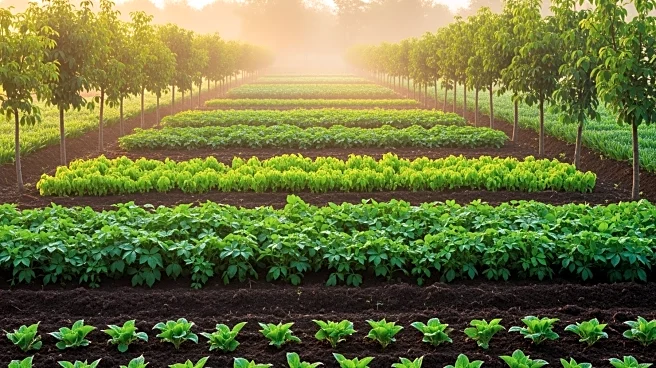What's Happening?
A study presented at the COP30 summit in Belém reveals that transitioning from livestock farming to plant-based agroforestry could significantly increase rural income in Brazil. Coordinated by ProVeg Brazil, the research suggests that such a shift could boost
net income by up to 110% per hectare, with potential increases of up to 1,525% in areas replacing low-productivity cattle farming. Agroforestry systems, which absorb more carbon than they emit, offer a more sustainable alternative to livestock farming, which is a major contributor to greenhouse gas emissions. The study also highlights the potential for agroforestry to create more jobs and reduce deforestation.
Why It's Important?
The findings underscore the economic and environmental benefits of plant-based agroforestry, presenting a viable solution to deforestation and rural poverty in Brazil. By requiring less land and offering higher income potential, agroforestry could help mitigate the environmental impact of traditional livestock farming. The study suggests that policy support and financial incentives are crucial for wider adoption, which could contribute significantly to Brazil's climate goals and support rural communities.
What's Next?
The report calls for stronger policy support to make agroforestry systems more accessible, including increased funding for family farming initiatives. A pilot project in Paraná is testing the viability of this transition, with promising results expected to demonstrate the economic and environmental benefits of agroforestry. The financial sector is encouraged to redirect financing towards sustainable practices, potentially accelerating the shift from livestock to agroforestry.
















